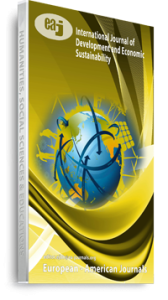Nigeria as a developing nation needs adequate savings to encourage investment and promote economic growth. Empirically, this work has made an attempt to analyze the impact of savings and investment on the growth of the Nigerian economy. From the result of the study conducted within the period 1970 to 2015, using a battery of contemporary econometric approach involving unit root test, co-integration test and error correction model it was found that factors such as Gross Domestic Savings (GDS), Gross Fixed Capital Formation (GFCF), Labour Force (LAF) and Savings Facility (SF) are the main drivers of economic growth in Nigeria. Furthermore, evidence from the investment model shows that Real Gross Domestic Product and Gross Domestic Savings (GDS) are the two drivers of Investment in Nigeria. This means that if there is proper capital accumulation in the form of savings, investment would be great and sustainable. The multiplier effect is on the well-being of the people through increased capital and output. The study recommended among others that; the government through the Central Bank of Nigeria (CBN) should ensure the reduction of reserve requirements of commercial banks in order to make available adequate funds in form of loans and advances for investment which will boost economic growth. Government should always maintain a good political atmosphere that is devoid of political upheavals because insecurity in the country has contributed immensely to the discouragement of the people from the cultivation of banking habit. More so, foreign direct investment will be discouraged in an environment ravaged with rancor. Banks should be encouraged to establish branches in the rural areas to discourage the rural dwellers from saving in their local saving boxes. This will bridge the gap between savings and investment. The government of Nigeria has a role to play by making policies that would encourage the spread of banks. This would be done by upgrading the standard of the Nigerian banking sector. Labour force has been revealed to be a positive growth stimulant in the study. Thus, government and the private sector should ensure that there is realistic and practical curriculum development in schools that will evolve a more productive labour force. Finally, the Governor of the apex bank (CBN) and monetary policy committee should liaise with the necessary operators to ensure that there are realistic interest and inflation rates that will stimulate economic activities and bring about the requisite economic growth in Nigeria.
Keywords: Co-integration, Investment, Nigeria, Savings, economic growth

